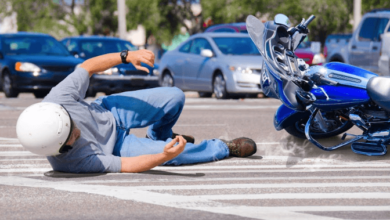7 Common Tactics Criminal Defense Attorneys Use to Challenge the Prosecution’s Case

Criminal accusations might result in severe consequences, such as time spent behind bars and hefty fines. One cannot overlook the long-term repercussions of a criminal record. That’s why it is essential to have a plan to counter the prosecution’s arguments before entering the trial.
In the US, only around 2% of all felony cases go to trial, and the jury decides most of those who do. Due to plea deals between the prosecutor and defense attorney, most people resolve felonies before trials.
This means you should have a good and experienced defense attorney to increase your chances of them finding you innocent. Contact Chudnovsky Law or other such reputed firms for assault cases, white-collar crimes, probation violations, and professional license defense. Never DIY criminal cases. Here are the seven common tactics criminal defense attorneys use:
1. Insanity Plea
Intent is a necessary element of every criminal case against a defendant. The prosecution cannot demonstrate this if the individual in question is legally insane. An insane person cannot comprehend the moral consequences of an act or omission.
A defense attorney can use this strategy, provided they prove that the person is legally insane. Jurisdictions where you cannot use this defense are:
- Utah
- Kansas
- Idaho
- Montana
The acceptable tests that declare an individual legally insane include:
- The M’Naghten Rule
- Model Penal Code Test
- Irresistible Impulse Test
- Durham Rule
2. Beyond Reasonable Doubt
US law (as decided in the In Re Winship case) states that the prosecution must prove their case beyond a reasonable doubt for someone to be guilty of committing a criminal act. If any doubt arises, the judge or the jury cannot convict the individual.
Defense attorneys question the credibility of the witnesses to create doubt in the prosecution’s case. They do so by:
- Persuading the jury that the witness may be lying
- Showing bias
- Suggesting that there was witness bribery
3. Self Defense
State laws often make exceptions for acts undertaken in self-defense or for the protection of others. However, that individual must have been in imminent danger when they committed the offense. Imminent danger constitutes a fear of being:
- Raped
- Murdered
- Severely injured
- Burgled
If the defense attorney can prove that the accused was in imminent danger, the court will acquit them, and there will be no punishment. Despite the accused believing in imminent danger, they must use reasonable force.
For instance, the courts deem a person stabbing an intruder who comes in with a knife proportional. The person’s actions are not proportionate if they shoot and murder the identical burglar who approaches with a knife.

4. Accident
Most offenses outlined in America’s Model Penal Code comprise purposeful acts committed by individuals who deliberately intend to carry out the crime.
Your criminal justice attorney has a strong defense against the accusation if they can demonstrate that the act was unintentional and free of criminal intent. This is also applicable to first-degree murder charges.
Read also Common Pitfalls in 1031 Exchanges and How to Avoid Them
5. Forced or Fabricated Admissions
Many police have the habit of acquiring false admissions from innocent prisoners. They do so by:
- Physical intimidation
- Sleep deprivation
- Malnutrition
- Psychological techniques
Children and teenagers are more prone to manipulation. It may be possible to get the admission thrown out and removed from the record if the defense attorney’s trial strategies reveal proof of coercion.
6. Necessity
A person can invoke the “necessity” defense to justify otherwise illegal behavior to prevent even more severe consequences.
Suppose the defendant reasonably believed that they or another individual were in imminent danger and that the only reasonable choice was to commit criminal conduct. In that case, the defendant should not be guilty. However, the evidence must show that it was necessary to commit the crime.
7. Alibi
If the defense attorney can provide an alibi who will testify and prove that you were not present at the crime scene when the crime was being committed, then the court cannot find the accused guilty.
Alibi can either be:
- A person
- Video footage
- Photographs
- GPS records
If the alibi is a person, they must have evidence to back their testimony.
Conclusion
You may decide to do the defense independently, but the chances of success are less. This is why it is advisable to seek the legal assistance of criminal defense attorneys, as they have the knowledge and experience needed to handle such cases.





